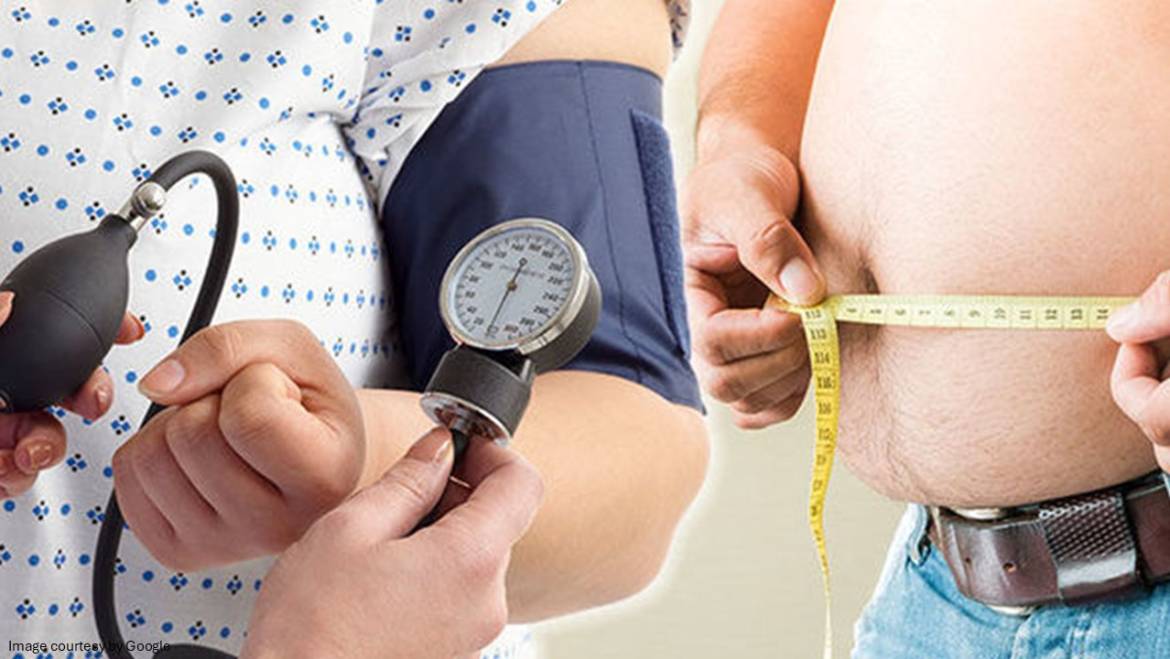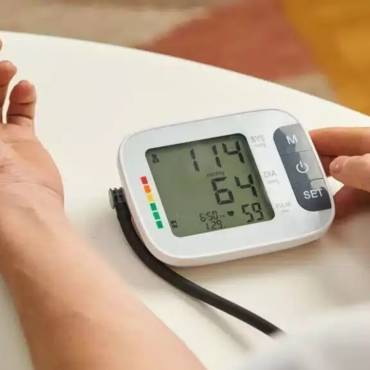People often wonder how weight gain affects blood pressure. This page covers how does losing weight lower blood pressure. Studies reveal that, to some extent, the connection between weight gain and blood pressure condition varies from person to person.
Maintaining a healthy weight provides many health benefits, including the management of blood pressure. If you are overweight, then losing even a few pounds may help lower your blood pressure. Exercise and diet are often recommended as the treatment for high blood pressure. This page will shed light on the following questions: Can high blood pressure cause weight gain?
The link between high blood pressure and weight gain
Several studies have shown the relationship between weight gain and high blood pressure. Weight gain in adults is a concerning risk factor for the development of hypertension. Constant blood pressure can damage blood vessels and increase the risk of long-term health consequences. Therefore, it is important to lower elevated blood pressure to avoid other health complications. Being overweight or obese puts you at a high risk of developing health issues. Losing even as little as 5 to 10 pounds brings a lot of health gains. If you are overweight, losing as few as 5 to 10 pounds may help bring back the normal levels of blood pressure. When you lose weight, the strain on your heart further reduces. Being overweight puts extra strain on the heart, increasing the risk of causing hypertension or elevated blood pressure and damaging blood vessels that can give rise to serious health threats.
Blood pressure – A valid reason to lose weight
Effect of weight gain on blood pressure – According to a research study in America, gaining just 5 pounds can raise blood pressure. Extra body weight invites unwanted health issues; researchers have found that even a small weight gain can lead to hypertension. Extra body weight is one of the causes of blood pressure. Now, the question arises of what blood pressure is considered too high. Blood pressure readings of 120/80mmhg is considered normal blood pressure. If the blood pressure readings are 140/80 or higher, it is considered high and is referred to as hypertension. If your blood pressure is between 120 and 129 and less than 80, it is considered elevated, but this doesn’t mean you have hypertension; this could be an indication of the development of the problem in the future. However, the likelihood of developing hypertension can be reduced by adopting lifestyle changes that help keep your blood pressure under control.
Weight loss to lower blood pressure
Research suggests losing some weight can cause a significant reduction in blood pressure. Weight loss is most successful when dietary changes are combined with more physical activities. It is important to maintain the changes in diet over the long run. Note that an extreme diet doesn’t help. A perfect exercise routine will make you lose quickly with the necessary dietary modifications. Reducing salt intake, eating more fruits and vegetables, Regular exercise, and limiting alcohol intake may help you achieve your goal of losing extra pounds. However, medicines may also be added as a treatment for high blood pressure. Exercise, in conjunction with dietary changes, is natural for blood pressure.
Do blood pressure meds cause weight gain?
Well, this is not true; blood pressure meds do not cause weight gain when you take it per regime. Keeping blood pressure in control is important to eliminate certain health risks. Following a doctor’s instructions helps you achieve normal blood pressure levels and body weight.
If your health care professional recommends you lose weight in order to gain control over blood pressure, follow an effective exercise routine along with dietary changes. By strictly following this trick, you can easily beat one of the major causes of blood pressure, which is extra weight.
The best and simplest remedy for blood pressure is to move more and make smarter food choices. Gradually increasing your level of physical activity to moderate-intensity aerobic activity lowers the number of calories you eat and eat a healthy diet. You can also talk to your healthcare specialist about a healthy approach. Your doctor can help you figure out how many calories you need for weight and advise you on dietary changes along with types of activities that best suit you.
The natural trick to lose weight
If you want to lose weight, make sure you eat fewer calories than you burn. Avoid any crash diet to lose your extra pounds quickly. The healthiest and longest-lasting weight loss happens when you do it slowly by losing 1 to 2 pounds of weight per week. It is possible to lose weight by cutting back 500 calories per day; by eating less and moving more, you can lose about one pound a week. Follow these tips to help you lose on the road to healthy eating:
-
- Choose high-fibre foods –Foods rich in fibre include vegetables, beans, whole grains, dry peas, pasta, bread, and cereals. These foods are low-calorie and are considered a good source of vitamins and minerals.
- Limit serving size –When it comes to losing weight, it is not just the types of food you eat that are important, but also the amount of food you consume. To lose weight, you need to reduce your calorie intake and limit your portion size.
- Make a food diary –Write down what you eat and when you eat. Note whether you skip breakfast, eat a large lunch, or have a snack while watching television. You keep a close eye on your eating habits, and you can achieve your weight loss goal.
Weight control is the ultimate natural remedy to help keep blood pressure levels under control.
Also Read: Foods That Lower Blood Pressure



